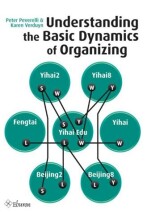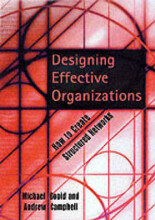Marquis: Vive la resistance: competing logics and the consolidation of US community banking
16 important questions on Marquis: Vive la resistance: competing logics and the consolidation of US community banking
According to Marquis a changing institutional environment lead some people to be resistant to change. What does this resistance do?
Name 4 examples where the environment induced change:
2. Change brought about by changing market conditions/competitor activity:
- Book shops vs Amazon/other online providers
- Resistance to mergers and acquisitions spawning new entrepreneurship (Marquis)
3. Change brought about by government regulation: f.e. carbon emission regulations
Marquis explored how the growing dominance of nationally oriented banks has been resisted in some US communities. What did they investigate empirically?
The effect of professionally driven local bank creation is even greater, when acquisitions were undertaking by out-of-town national banks.
> The creation of new banks in communities was a form of resistance to the efforts of national banks to control resource allocation decisions in those communities.
- Higher grades + faster learning
- Never study anything twice
- 100% sure, 100% understanding
How did Marquis gathered data?
The primary causal mechanism behind bank founding is perceived market needs. What does this mean? Formulate hypothesis 1 of Marquis.
H1: The more local banks are acquired in a community, the greater the founding rate of new banks in that community.
>> supported
What does increased concentration in a local market trigger? Formulate hypothesis 2 (Marquis)
H2: The greater the market concentration of a local community, the greater the founding rate of new banks in that community.
>> supported
Marquis thinks that there is a negative relationship between large generalist banks and start-ups. Which hypothesis does he formulates?
>> Supported
Marquis concludes that a greater number of bank foundings is likely in communities in which there is a strong professional presence. Which hypothesis suits this?
>> Not supported
Acquisitions by outsiders can create considerable uncertainty by introducing a new national logic into a community, opening up opportunities for new firm creation. What does Marquis expect and which 2 hypotheses belong to that?
H5: The greater the numbers of acquisitions by out-of-town banks in a community, the greater the founding rate of new banks in that community
H6: Acquisitions by out-of-town banks in a community will have greater effect on the founding rate of new banks in that community than acquisitions by local banks.
>> Both supported
Describe the last hypothesis of Marquis regarding interaction between local and out-of-town banks:
>> Supported
What is the theoretical focus of the study of Marquis?
Marquis examines how some types of acquisitions, conditioned by institutional logics, may systematically open up entrepreneurial opportunities for professionals. What does Marquis show?
> Thus sensing entrepreneurial opportunities is not a neutral, objective occurrence but one perhaps embedded in broad institutional dynamics involving competing logics.
What is specifically examined by Marquis?
In this article Marquis build on the notion that logics can be rooted in geographical differences, highlighting how competing logics can provide a foundation for resistance. What is the aim of Marquis?
What does Marquis overall argue in his study?
What does the study of Marquis investigate?
The question on the page originate from the summary of the following study material:
- A unique study and practice tool
- Never study anything twice again
- Get the grades you hope for
- 100% sure, 100% understanding






























